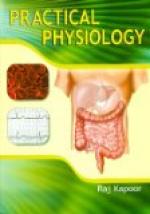The control of the blood-vessels, as has been stated (sec. 195), is one of the special functions of the sympathetic system. Through the nerves distributed to the muscular coats of the arteries, the caliber of these vessels can be varied, so that at one moment they permit a large quantity of blood to pass, and at another will contract so as to diminish the supply. This, too, is beyond the control of the will, and is brought about by the vaso-motor nerves of the sympathetic system through a reflex arrangement, the center for which is the medulla oblongata.
284. Need of Rest. The life of the body, as has been emphasized in the preceding chapters, is subject to constant waste going on every moment, from the first breath of infancy to the last hour of old age. We should speedily exhaust our life from this continual loss, but for its constant renewal with fresh material. This exhaustion of life is increased by exertion, and the process of repair is vastly promoted by rest. Thus, while exercise is a duty, rest is equally imperative.
The eye, when exactingly used in fine work, should have frequent intervals of rest in a few moments of darkness by closing the lids. The brain, when urged by strenuous study, should have occasional seasons of rest by a dash of cold water upon the forehead, and a brief walk with slow and deep inspirations of fresh air. The muscles, long cramped in a painful attitude, should be rested as often as may be, by change of posture or by a few steps around the room.
It is not entirely the amount of work done, but the continuity of strain that wears upon the body. Even a brief rest interrupts this strain; it unclogs the wheels of action. Our bodies are not designed for continuous toil. An alternation of labor and rest diminishes the waste of life. The benign process of repair cannot go on, to any extent, during strenuous labor, but by interposing frequent though brief periods of rest, we lessen the amount of exhaustion, refresh the jaded nerves, and the remaining labor is more easily endured.
285. Benefits of Rest. There is too little repose in our American nature and in our modes of life. A sense of fatigue is the mute appeal of the body for a brief respite from labor, and the appeal should, if possible, be heeded. If this appeal be not met, the future exertion exhausts far more than if the body had been even slightly refreshed. If the appeal be met, the brief mid-labor rest eases the friction of toil, and the remaining labor is more easily borne. The feeling that a five-minute rest is so much time lost is quite an error. It is a gain of physical strength, of mental vigor, and of the total amount of work done.
The merchant burdened with the cares of business life, the soldier on the long march, the ambitious student over-anxious to win success in his studies, the housewife wearied with her many hours of exacting toil, each would make the task lighter, and would get through it with less loss of vital force, by occasionally devoting a few minutes to absolute rest in entire relaxation of the strained muscles and overtaxed nerves.




